parsifal
Colonel
It would be very heavy loss if it would be truth. It is not. Number already given 58 bomber destroyed against England during night, about 5 in day time in April 1941. Your numbers are fantasm category.
We need to see your source material to verify that claim. In the meantime I have posted the loss sheets for the LW in April. these losses are based on the OKL Quartmaster loss return sheets, which have to be considered as the best primary source for the germans. I started at 7 April, and only needed to go to 10 April to exceed your claim of 58 bomber losses. The losses do include aircraft dmaged, but according to Foreman, an aircraft damaged much more than 35% would almost certainly be scrapped.
Anyway here are the bomber losses according to Foreman for the period of 7-10 April. as they exceed 58, and you have not posted your source material, I do not need to go any further than that to debunk your claim. as i said Foreman says he bases these lists on the OKL quatermasters loss reports. For these lists to be wrong, either Foreman is lying, he has not read the report s correctly, the OKL reports are wrong, or your claims are incorrect. guess which one I think is most likley.......
The summary sheets include the units and the serials so you should be able to verify the losses from your own source material.
Attachments
-
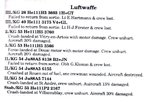 7-8 April Sheet 1.jpg69.2 KB · Views: 136
7-8 April Sheet 1.jpg69.2 KB · Views: 136 -
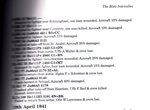 8-9 April Sheet 2.jpg53.3 KB · Views: 163
8-9 April Sheet 2.jpg53.3 KB · Views: 163 -
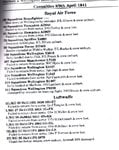 8-9 April Sheet 3.jpg138 KB · Views: 129
8-9 April Sheet 3.jpg138 KB · Views: 129 -
 9 April Sheet 1.jpg55.5 KB · Views: 137
9 April Sheet 1.jpg55.5 KB · Views: 137 -
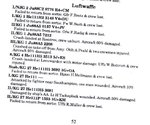 8-9April sheet 1.jpg83.1 KB · Views: 149
8-9April sheet 1.jpg83.1 KB · Views: 149 -
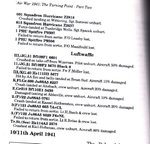 10 April.jpg101.6 KB · Views: 139
10 April.jpg101.6 KB · Views: 139 -
 7-8 April Sheet 2.jpg50.4 KB · Views: 132
7-8 April Sheet 2.jpg50.4 KB · Views: 132 -
 8-9 April Sheet 4.jpg55.4 KB · Views: 160
8-9 April Sheet 4.jpg55.4 KB · Views: 160 -
 9 April Sheet 2.jpg64.5 KB · Views: 135
9 April Sheet 2.jpg64.5 KB · Views: 135 -
 8 April Sheet 2.jpg65.1 KB · Views: 123
8 April Sheet 2.jpg65.1 KB · Views: 123
